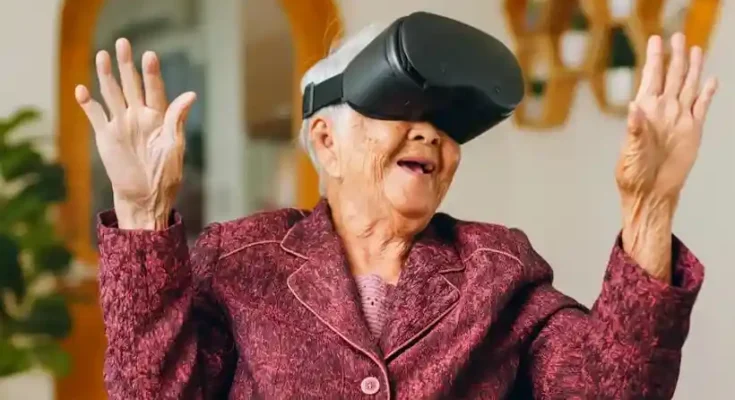Entertainment is not just an escape—it’s a mirror, a time capsule, and a global language. From the rhythmic beat of tribal drums to the infinite scroll of streaming platforms, the ways we entertain ourselves have evolved dramatically, yet the purpose has remained unchanged: to captivate, connect, and provoke emotion. Entertainment is the heartbeat of culture and the lens through which we view ourselves and others.
In today’s fast-moving world, entertainment isn’t bound by a single format or medium. It stretches across screens, stages, pages, and even virtual realities. Let’s take a journey through the dynamic world of entertainment, exploring how it has grown, shifted, and redefined itself across generations.
The Ancient Roots of Entertainment:
Long before the invention of electricity, humans found ways to express and enjoy themselves through art, music, dance, and storytelling. Entertainment in its earliest form was often communal, connecting people through shared rituals and celebrations.
- Storytelling by Firelight
Before books, films, or digital content, stories were passed down orally. Elders would sit by the fire and spin tales of gods, heroes, monsters, and morality. These stories served multiple purposes—education, history, and pure amusement. Every pause, every dramatic shift in voice, was a performance in its own right. It wasn’t just about the plot, but the experience.
- The Theater is Born
Ancient civilizations such as the Greeks and Romans formalized entertainment through structured plays and performances. Amphitheaters echoed with tragic monologues, comedic jests, and grand spectacles. This was entertainment with purpose, addressing politics, ethics, and the human condition. The origins of theater remind us that entertainment has always held a mirror to society.
The Rise of Mass Media:
As technology advanced, entertainment entered new chapters—printing presses brought novels to the masses, and radio waves carried stories into living rooms. With each evolution, accessibility increased, and with it, the global appetite for amusement.
- Radio and the Magic of Imagination
The early 20th century saw families gathered around radios, hanging onto every word of suspenseful dramas and comedic sketches. The beauty of radio was its reliance on the listener’s imagination. Without visuals, it forced people to paint their own mental pictures, making each experience personal and vivid.
- The Silver Screen Revolution
Then came the movies—first silent, then synchronized with sound. The golden age of cinema in the 1930s and ‘40s made Hollywood a cultural powerhouse. Films became more than stories—they were events. People dressed up to attend them. Movie stars weren’t just actors; they were idols, shaping fashion, values, and even political opinions.
The Television Era and Global Culture:
With the television’s arrival in the mid-20th century, entertainment became a daily fixture in people’s lives. It was no longer something you had to go out for—it came directly into your home.
- The Power of the Sitcom
Sitcoms introduced relatable, recurring characters who became almost like family. Shows like Friends, The Fresh Prince of Bel-Air, and The Office not only entertained but subtly influenced how people saw relationships, work, and even race or gender dynamics. These series weren’t just background noise—they helped shape modern societal norms.
- Breaking News and Live Events
Television also changed how we experienced the world. For the first time, people could watch live sporting events, breaking news, and political debates as they happened. Entertainment and information merged, making television a powerful tool in shaping public opinion.
Digital Age:
Then came the internet—and everything changed. Entertainment was no longer dictated by networks or schedules. Suddenly, we could choose what to watch, when, and how. This era didn’t just change the format of content—it changed its creators and consumers too.
- Streaming and the Era of Choice
With the rise of platforms like Netflix, Hulu, and Disney+, the power shifted from television networks to digital giants. Viewers binge-watch entire seasons in a weekend, and international content like Korean dramas or Spanish thrillers gained global popularity. Entertainment became borderless.
The traditional 9 PM time slot was replaced by the 3 AM “next episode” button. Algorithms began to shape what we watch, creating echo chambers of preferences, but also exposing viewers to new and diverse stories they might not have discovered otherwise.
- The Rise of the Creator Economy
Entertainment also became democratized. With platforms like YouTube, TikTok, and Twitch, anyone with a smartphone could become a content creator. The line between consumer and producer blurred. Influencers, streamers, and indie filmmakers started gaining audiences rivaling traditional celebrities. The audience no longer just consumes—they engage, comment, remix, and sometimes even fund the content they love.
Immersive Entertainment:
As technology continues to evolve, so does entertainment. We’ve moved beyond passive watching to full-blown immersion. Video games are no longer just about gameplay—they are rich, cinematic experiences with layered storytelling and emotional depth.
- Gaming as Modern Storytelling
Games like The Last of Us or Red Dead Redemption offer narratives as compelling as any film or novel. Players aren’t just observers—they are participants. Their choices shape outcomes, making entertainment interactive and deeply personal.
Gaming communities span the globe, connecting strangers through shared missions, competition, and creative exploration. Esports events fill arenas and stream to millions, rivaling traditional sports in scale and passion.
- Virtual Reality and the New Frontier
VR has begun pushing entertainment into entirely new dimensions. With a headset, users can step into alternate worlds—climb Everest, walk with dinosaurs, or attend virtual concerts with people from across the planet. Entertainment becomes an experience that engages the whole body, not just the eyes and ears.
Entertainment’s Impact on Identity and Society:
Entertainment isn’t just a pastime—it’s an identity. What we watch, read, listen to, and play says something about who we are. It influences our tastes, beliefs, and even our sense of belonging.
- Representation Matters
In recent years, there’s been a growing call for diversity and authenticity in entertainment. Audiences are demanding stories that reflect their lives, cultures, and challenges. The success of films like Black Panther or shows like Pose proves that inclusion isn’t just important—it’s powerful and profitable.
Entertainment helps marginalized voices be heard and seen. It educates audiences, builds empathy, and can challenge stereotypes or dismantle long-held biases.
- Connection in a Disconnected World
In a time of digital overload and physical distance, entertainment is a thread that still ties us together. We discuss plot twists in group chats, host virtual watch parties, or bond over mutual love for a character or game. Whether it’s through shared laughter or collective tears, entertainment remains a bridge between people, even across oceans and time zones.
The Future of Entertainment:
Where do we go from here? With AI-generated content, holographic performances, and augmented reality on the rise, the future of entertainment looks more imaginative than ever. But even as the formats change, the core stays the same—storytelling, emotion, and connection.
We may soon live in a world where entertainment is embedded into our daily lives—holograms on our kitchen table, personalized storylines tailored to our emotions, or AI-driven characters who evolve with us over time. But no matter how advanced the technology gets, the desire behind it remains very human: to feel, to dream, and to belong.
Conclusion:
Entertainment is not trivial—it’s transformational. It entertains, yes, but it also teaches, heals, questions, and inspires. From a child’s bedtime story to a billion-dollar blockbuster, the mediums may differ, but the purpose remains constant.
As we continue to innovate and explore, entertainment will remain our shared stage. And no matter how digital the world becomes, the human need to laugh, cry, and connect through stories will always be the heart of it all.




